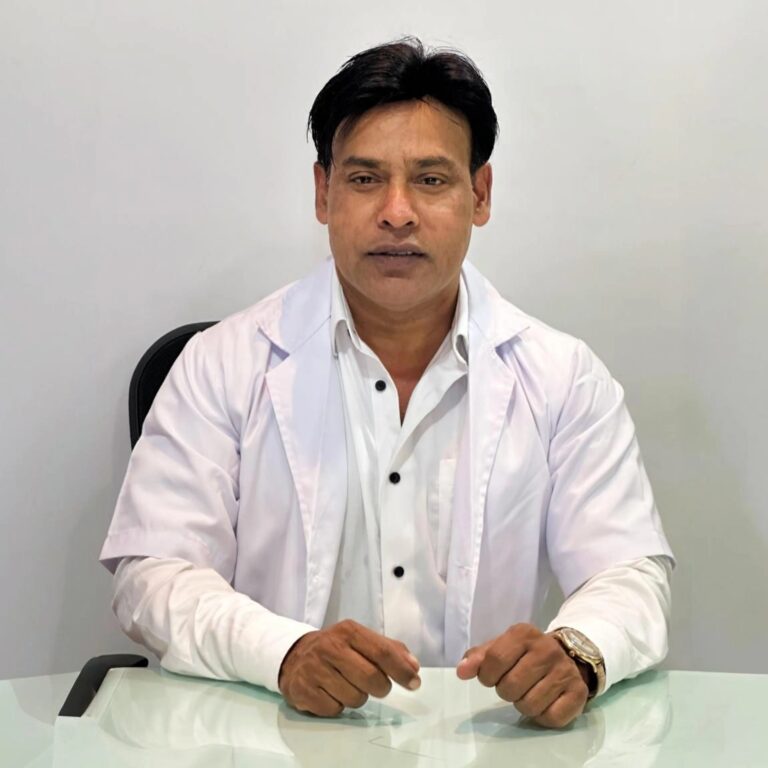STD Treatment

Dr. Sunil Kuril
M.B.B.S., M.S.
Proctologist, General Surgeon
Sexually Transmitted Diseases (STDs)
Sexually transmitted diseases (STDs) are infections that are primarily spread through sexual contact. They can be caused by bacteria, viruses, or parasites and affect millions of people worldwide. Early diagnosis and treatment are crucial to prevent complications and reduce the risk of transmission. At ProctoCare Center in Indore, Dr. Sunil Kuril offers expert care for the diagnosis, treatment, and prevention of STDs, providing confidential and compassionate care for all patients.

STD's
Symptoms of STD:
Unusual Discharge
- Men: Discharge from the penis that may be white, yellow, or green.
- Women: Vaginal discharge with an unusual color, odor, or consistency.
Painful Urination
- A burning or stinging sensation during urination, which may indicate an infection in the urinary tract or genital area.
Sores or Blisters
- Open sores, blisters, or ulcers on or around the genitals, mouth, or anus. These can be painful or itchy and are commonly associated with herpes and syphilis.
Itching or Irritation
- Persistent itching or irritation in the genital area, which may be accompanied by redness or swelling.
Pain During Sex
- Discomfort or pain during intercourse, which can be a sign of an infection or inflammation.
Swollen Lymph Nodes
- Swelling of the lymph nodes, especially in the groin area, indicating the body’s response to infection.
Fever and Malaise
- General feelings of being unwell, such as fever, fatigue, and body aches, often associated with systemic infections like HIV or syphilis.
Rashes
- Rashes on the body, particularly on the hands, feet, or torso, which can occur with infections like syphilis or HIV.
Importance of Early Detection
Many STDs can be asymptomatic, meaning they show no symptoms but can still cause long-term health problems and be transmitted to others. Regular screening and testing are essential, especially for those who are sexually active or have multiple partners. Early detection and treatment can prevent complications and help manage the spread of infections.
Common Sexually Transmitted Diseases
Chlamydia:
- Cause: Bacterial infection.
- Symptoms: Often mild or absent, but can include genital discharge and pain during urination.
- Treatment: Antibiotics.
Gonorrhea:
- Cause: Bacterial infection.
- Symptoms: Genital discharge, painful urination, and in women, pelvic pain.
- Treatment: Antibiotics.
Syphilis:
- Cause: Bacterial infection.
- Symptoms: Progresses through stages; initial sores, followed by rash, and eventually severe health problems if untreated.
- Treatment: Antibiotics, typically penicillin.
Human Papillomavirus (HPV):
- Cause: Viral infection.
- Symptoms: Often asymptomatic, but can cause genital warts and is linked to cervical and other cancers.
- Treatment: No cure, but vaccines are available for prevention, and warts can be treated with medication or removed.
Herpes Simplex Virus (HSV):
- Cause: Viral infection.
- Symptoms: Painful blisters or sores on the genitals or mouth.
- Treatment: Antiviral medications to manage outbreaks.
HIV/AIDS:
- Cause: Viral infection.
- Symptoms: Initially flu-like symptoms, followed by immune system weakening and opportunistic infections.
- Treatment: Antiretroviral therapy (ART) to control the virus and prevent progression to AIDS.
Trichomoniasis:
- Cause: Parasitic infection.
- Symptoms: Itching, irritation, and unusual genital discharge.
- Treatment: Antiparasitic medications.

